Advanced Plastic Recycling at Kilburn loses Tumby Bay District Council boardwalk contract to Victorian competitor
A family-owned recycling company has questioned local government’s commitment to SA, losing a $220,000 contract to an interstate competitor while receiving orders from only four councils in 12 months.
West & Beaches
Don't miss out on the headlines from West & Beaches. Followed categories will be added to My News.
- Thousands of tonnes of recycling stuck in shipping containers
- How to make the most out of your Advertiser subscription
A family-owned Adelaide plastics recycling company has lost an estimated $220,000 contract to replace an ageing wooden coastal boardwalk to a Victorian competitor.
The decision by Tumby Bay District Council comes despite its mayor, Local Government Association president Sam Telfer, overseeing a program by councils to increase procurement of local products made from recycling material.
Mr Telfer attended a ceremony last September at a Kilburn factory where he, LGA chief executive Matt Pinnegar and nine Adelaide mayors signed a formal agreement to start buying more recycling products to help stimulate the “circular economy”.
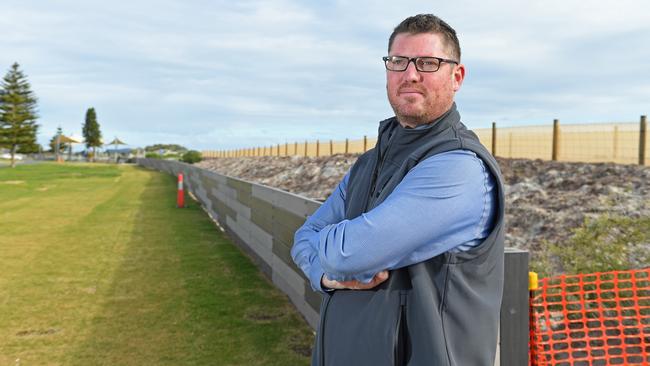
The SA company which hosted the ceremony, Advanced Plastic Recycling (APR), helped Tumby Bay council staff to design a new boardwalk made from small plastic sleepers before submitting a tender for the project.
Elected members last week instead confidentially voted to award the contract to a Melbourne company, Replas, which sources recycling from within huge stockpiles in Victoria created by the collapse of the state’s biggest processor, SKM.
APR’s chief executive, Ryan Lokan, said his company was frustrated with the decision, as it was reliant on winning large contracts to ensure it was able to continue processing recycled plastic collected from yellow bins across the state.
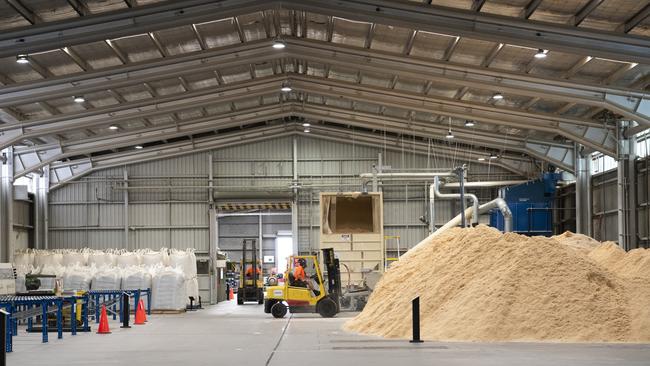
Mr Lokan said APR also had unsuccessfully bid for the $25 million contract to replace the state’s 5400km-long wild dog fence, with the State Government appointing Bunnings to a paneal of suppliers which will use star-droppers imported from China.
Among APR’s recent contracts have been the installation of a 300m-long wall for Port Adelaide-Enfield Council and the first two stages of a new wharf for businessman Sanjeev Gupta’s steelworks at Whyalla.
Mr Lokan said his company was the only plant in South Australia which used small pellets of recycled hard plastics mixed with saw dust and lubricants to produce items such as sleepers, bollards, rails and fence posts.
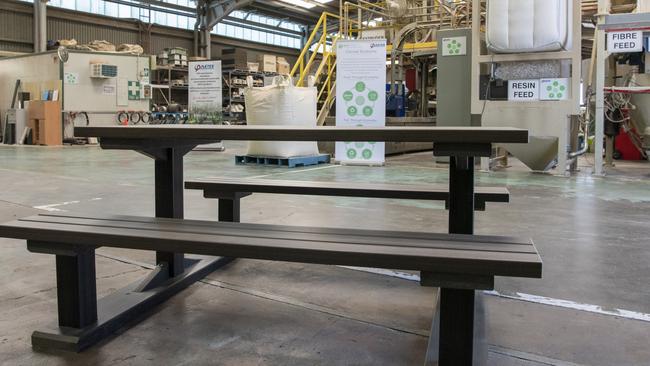
While several interstate councils had used his products to make footbridges and boardwalks, South Australian councils were regularly using products from interstate or China which did not have the same level of recycled content, he said.
“With SA’s own kerbside plastic and local jobs frequently being overlooked, it is once again disappointing to see another project, upgrading the iconic boardwalk at Tumby Bay, awarded to a Victorian manufacturer,” he said.
“With Mayor Telfer hosting the content buyback commitment in our facility 12 months ago, we would have hoped for stronger support from the president of the LGA. Of the nine councils which signed the agreement, only four of them have placed orders.”
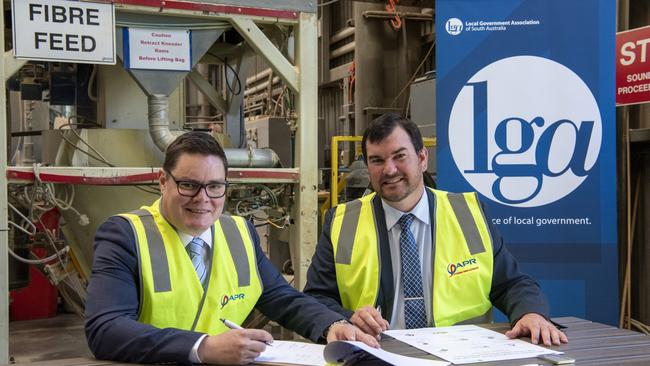
Mr Telfer said the Tumby Bay boardwalk contract “will use 100 per cent Australian-made products, including decking made from 100 per cent recycled plastics, including plastics (sourced) from SA’.
The council had a set budget for the project consisting of $200,000 from federal and state grants consisting and a $10,000 council contribution which could not meet the cost submitted by APR.
“The council sought proposals that incorporated recycled materials, demonstrated durability, were sensitive to the environment in which the project is being undertaken, and maximised the use of local Eyre Peninsula contractors,” he said.
“A challenge for the recycled product industry continues to be delivering a financially competitive product, as the accepted tender was the only one that was close to the budget consideration level.”
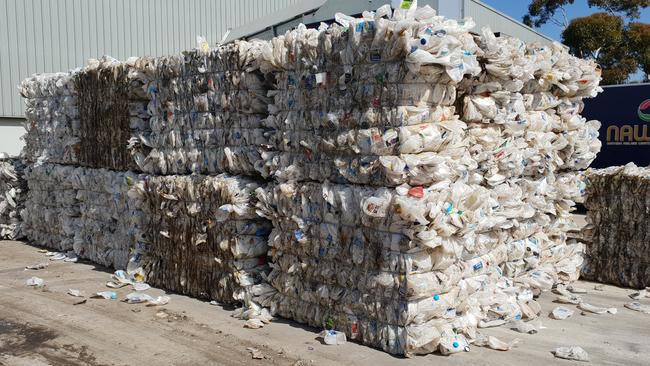
Mr Telfer said the pilot project launched by the LGA at APR’s factory was delivering good results, with a total of 17,000 tonnes of products made from recycling being purchased by signatories since last September.
“These councils have shown national leadership by helping to develop Australian markets and onshore processing for recyclable materials,” he said.
“Although the District Council of Tumby Bay is not one of the nine councils participating in the pilot project, the mangrove boardwalk project is a great example of utilising recycled product.”
Other council projects involving recycled products include mulch from green waste bins processed by Jeffries and Peats and road aggregate from glass and plastic in yellow bins, mostly from interstate.
Most paper and cardboard collected is sent to pulp mills within Australia and overseas.

